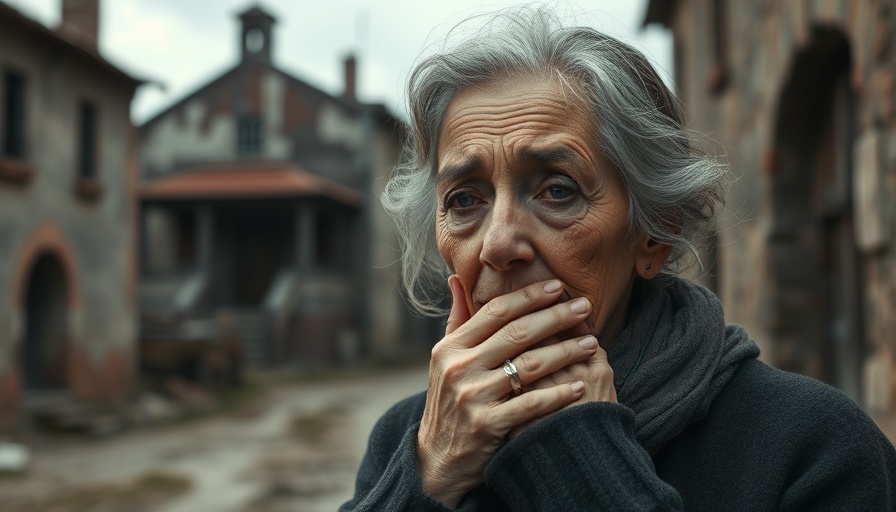
The Legacy of Srebrenica: How War Rewrites Identity
The Bosnian War remains one of the most harrowing chapters in European history, especially for the region around Srebrenica. This small town became infamous during the 1995 massacre when more than 8,000 Bosniak men and boys were killed in a matter of days, an event that painfully resonates through generations. The recent documentary, Everyday Life in the Bosnian War, provides an intimate look into the personal stories woven through this tragedy, allowing us to understand the complex identities shaped by conflict.
In Everyday Life in the Bosnian War - What happened in Srebrenica?, the documentary highlights personal stories intertwined with the broader narrative of conflict, prompting a deeper analysis of identity and trauma in war-torn regions.
Intergenerational Trauma: The Weight of the Past
Alisa's journey to learn about her father, Seph, who lived through the war and ultimately lost his life, illustrates the long-lasting impacts of trauma on families and communities. Growing up in a mixed Serbian-Bosnian household, she faced the challenge of reconciling her identity amidst societal divisions that the war exacerbated. Her search for understanding through her father's videotaped messages highlights how personal narratives can help individuals process complex history.
The Personal Narrative: A Window Into War’s Reality
While conventional histories often depict broad strokes of conflict, Alisa’s personal story brings a vital human element to the forefront. Her reflections raise critical questions: How do children of war understand their heritage? What truths remain unspoken in families fractured by violence? The documentary compels viewers to consider the intricate layers of identity shaped by events from distant past and the unresolved emotions they harbor.
Unity in Diversity: Lessons from a Divided Past
Amidst the trauma and loss, Alisa's story is also a beacon of hope—her father's love transcended ethnic divides, echoing a vision of coexistence that remains relevant today. His wish for Alisa to embrace life over the confines of hatred underscores the importance of dialogue and understanding among different ethnic groups. Such narratives foster reflection on how societies can work towards healing, reconciliation, and learning from the mistakes of the past.
As we engage with stories from conflicts like the Bosnian War, it challenges us to recognize our shared humanity. Alisa’s pursuit of her roots not only honors her father’s memory but also serves as a reminder of our responsibility toward fostering peace and solidarity in a world too often divided by ethnicity and religion.
Understanding the nuanced narratives of war survivors provides us with actionable insights. It calls for informed dialogue and awareness that can promote healing. Documentaries like this are vital tools in that collective journey toward justice and understanding.
 Add Row
Add Row  Add
Add 




Write A Comment